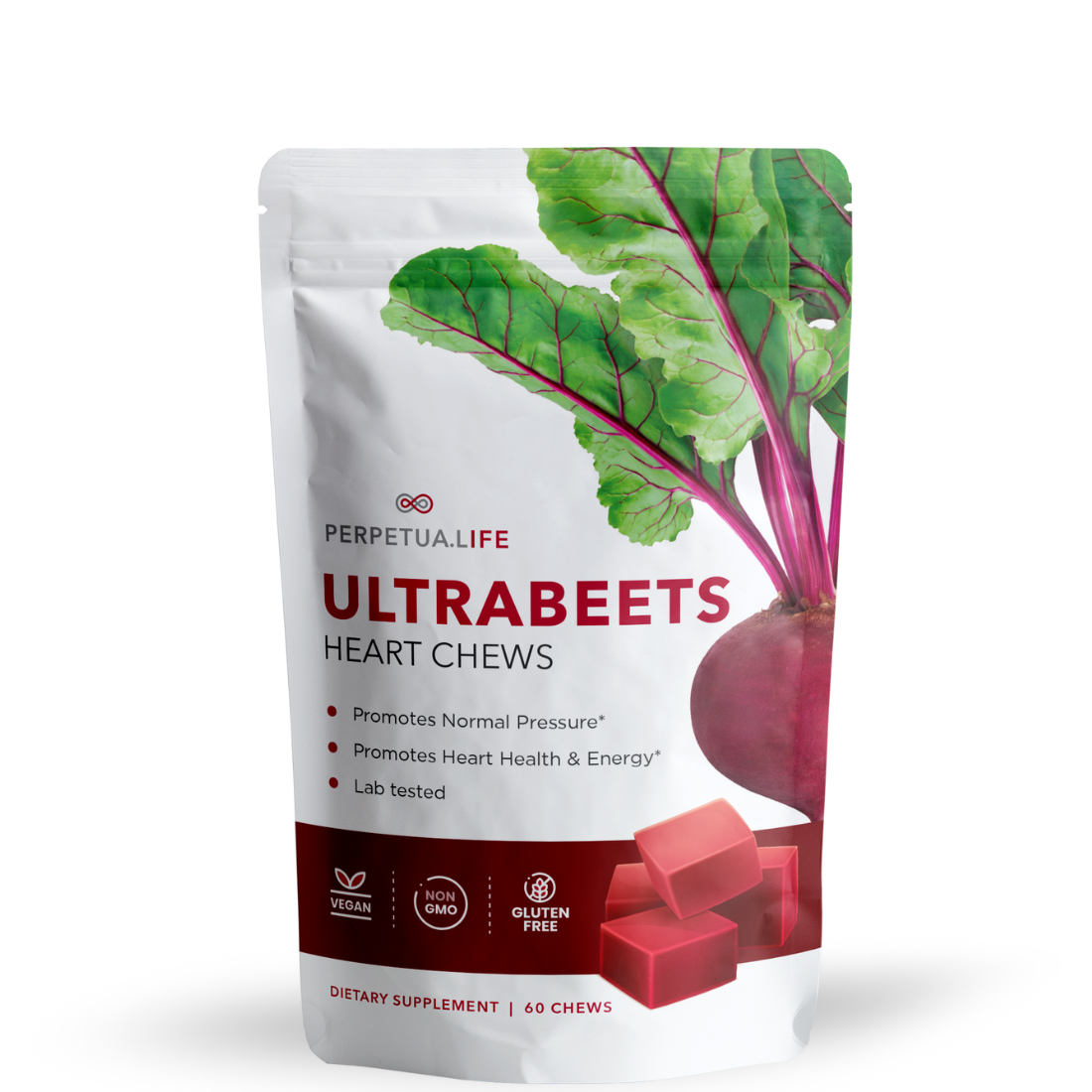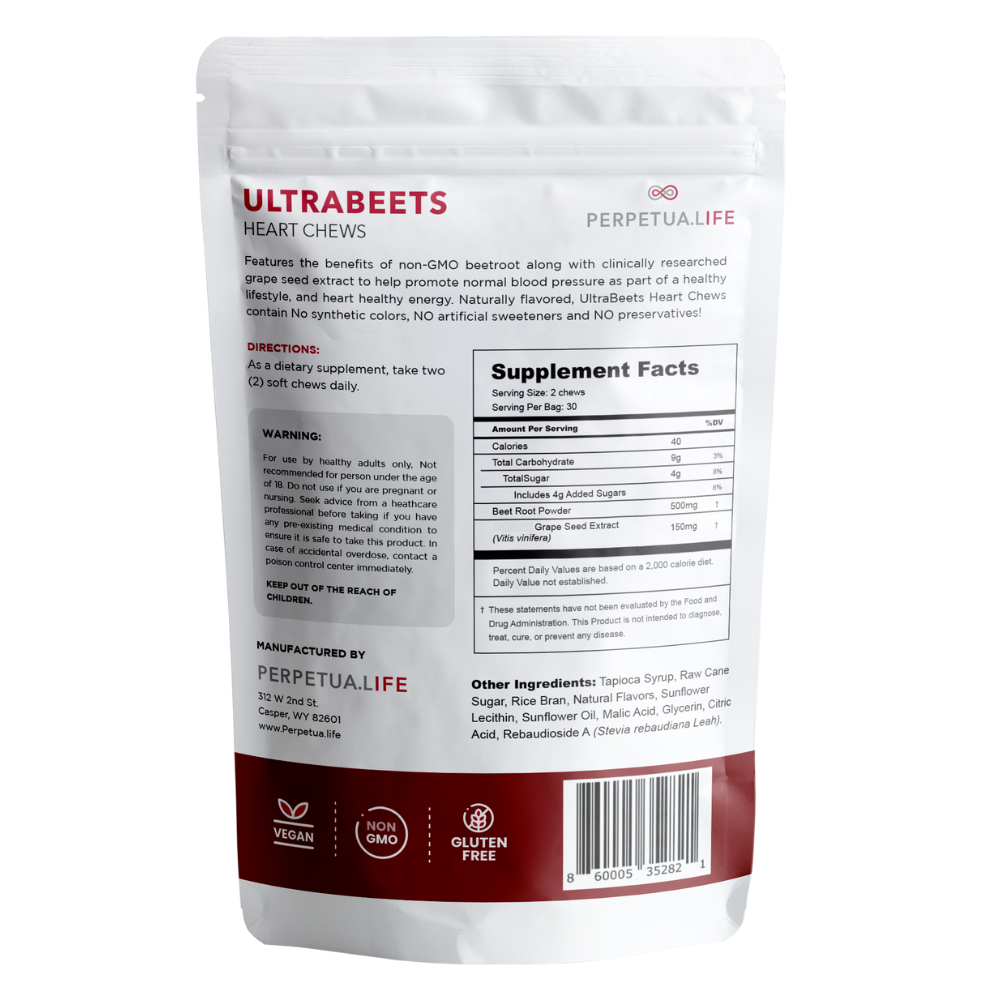Perpetua.Life
ULTRA Beets Heart Chews - Blood Pressure Support
ULTRA Beets Heart Chews - Blood Pressure Support
No se pudo cargar la disponibilidad de retiro

ULTRABeets
NEW Perpetua.Life ULTRABeets. Just take two delicious fruity berry flavored soft chews, one after the other, anytime of the day! Clinically proven to:
- Promote normal blood pressure as part of a healthy lifestyle
- Provide circulatory support
- Promote plant-based, heart healthy energy
- Support heart health
- Provide antioxidant support to help protect against oxidative stress & damage
Plus they are made with no artificial sweeteners, flavors, or colors.
- 500mg of Beet Root Extract
- 150mg of Grape Seed Extract
BENEFITS
Beetroot contains high levels of dietary nitrate (NO3), which the body converts into biologically active nitrite (NO2) and nitric oxide (NO). In the human body, NO relaxes and dilates blood vessels.
Researchers have concluded that consuming beetroot juice daily significantly reduces blood pressure in people with high blood pressure. [1]
For one thing, they are made with clinically-researched grape seed extract for added heart health support.
Not just from any grapes. But the finest quality grapes from the Loire Valley in France.
They’re packed with a fruity BURST of pomegranate-berry flavor in every deliciously delectable bite.
They combine two of nature’s most heart-friendly foods, beets and grape seed extract. Yet, they DON’T taste a thing like beets!
They have a tart, fruity, pomegranate berry flavor. You’ll love em with the first bite or your get a full refund (less shipping).
And they're so EASY to take with you. For even the most hectic morning schedule.
Bundle Purchase Options:
Share
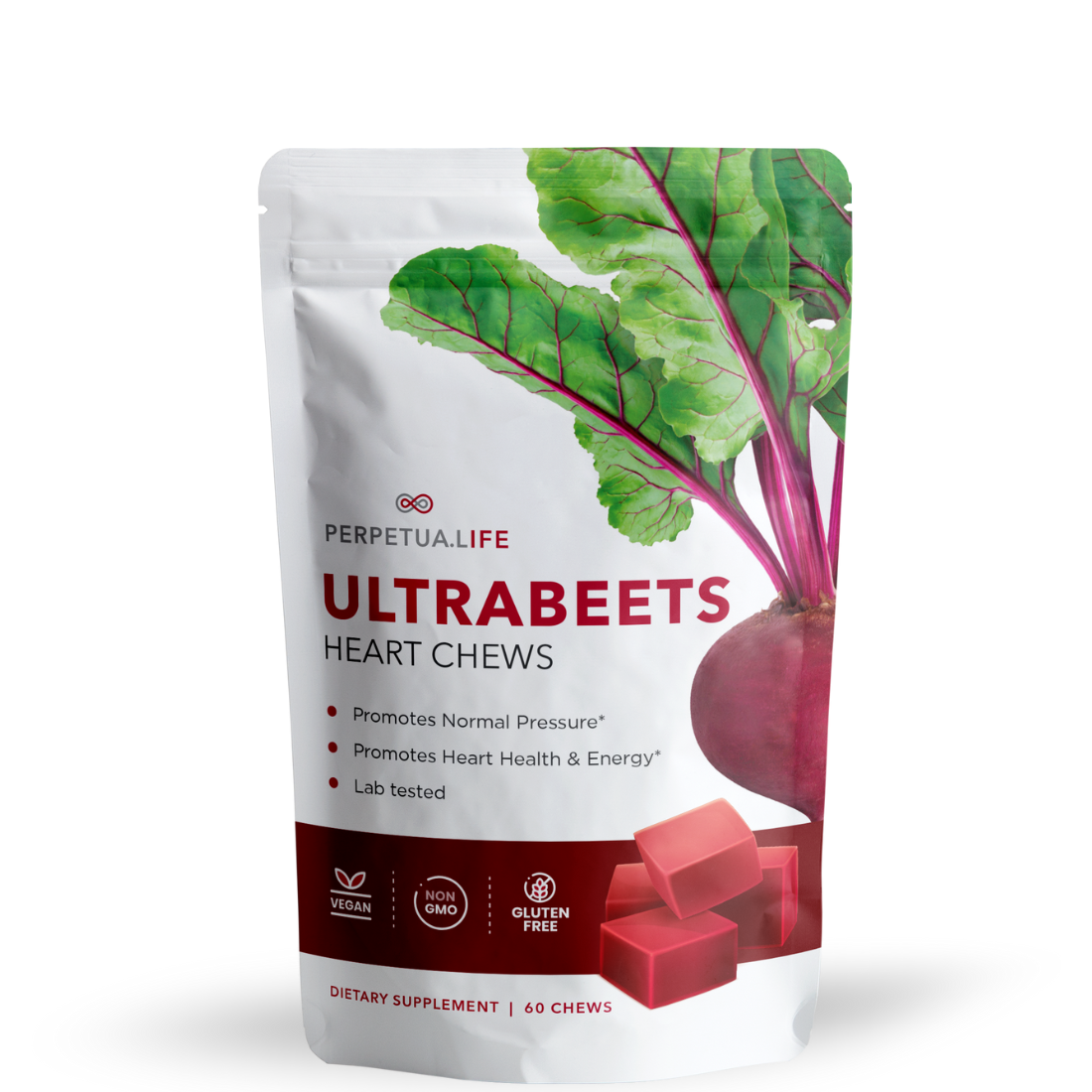
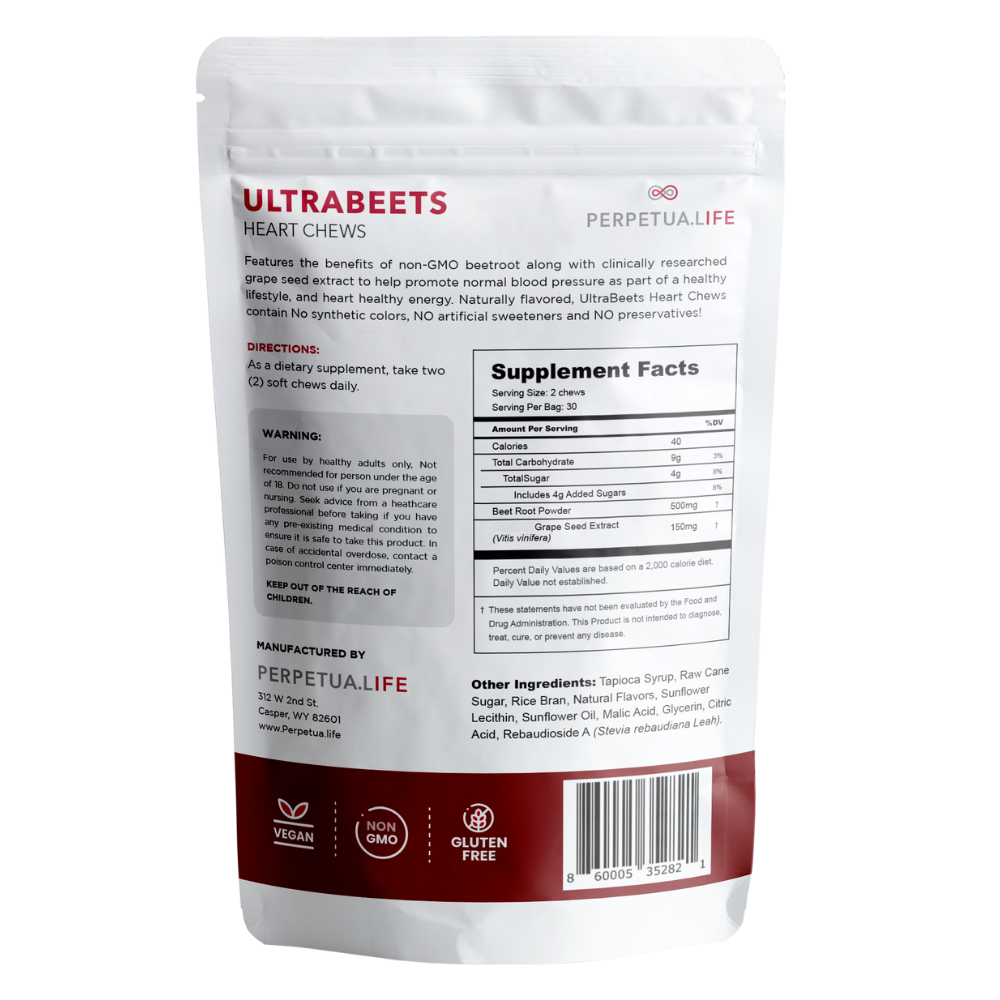
AEON Longevity Complex is a synergistic blend of 11 longevity ingredients that target the damages of aging.
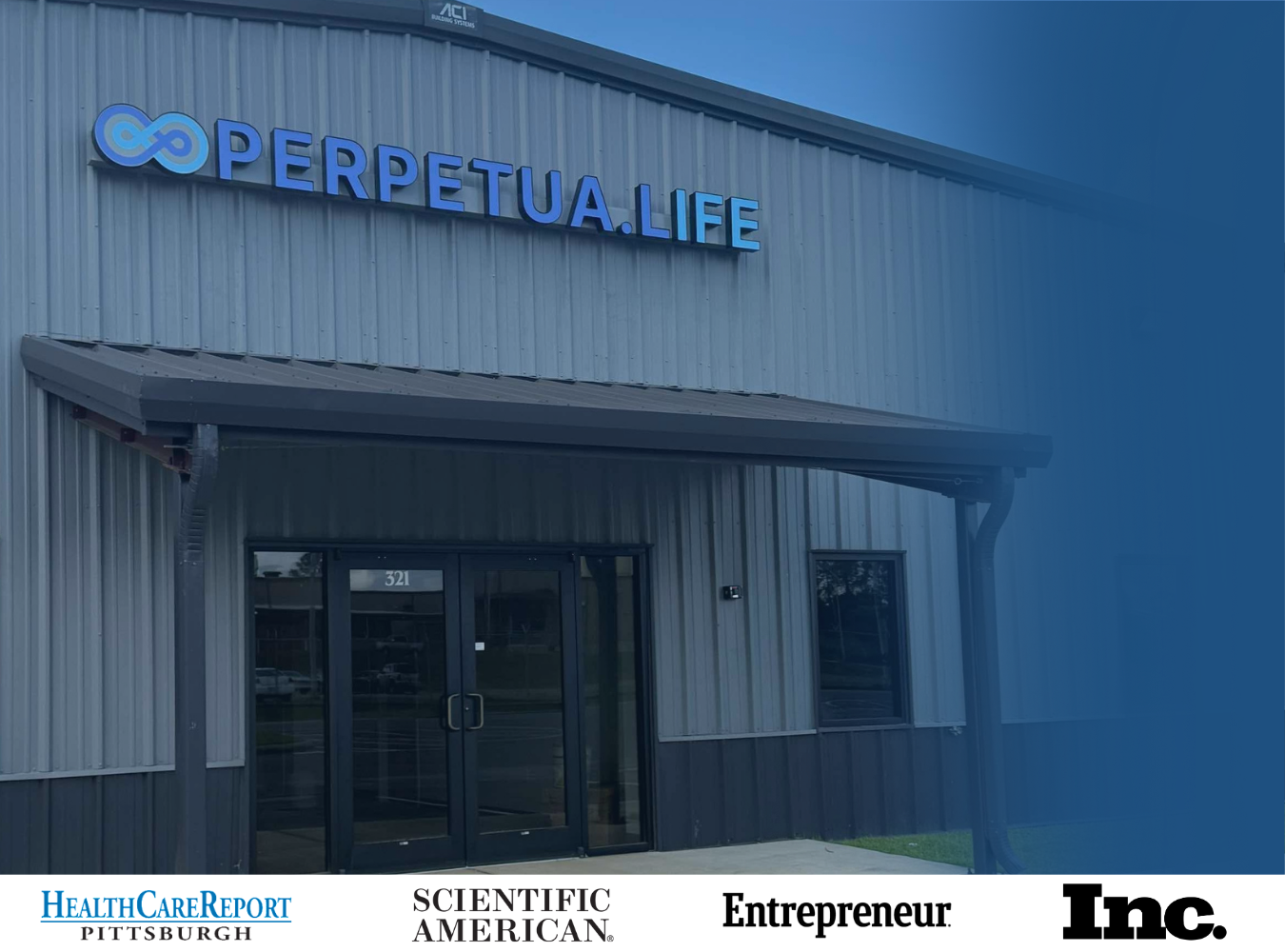
The Ultimate Evolution in Longevity.
Perpetua Life Biotech is a U.S. based research and development company specializing in life extension and gerontology.
We're a dedicated group of professionals that have made it our life's mission to ensure you can live a longer and healthier life.
A recent study has shown boosting your NAD+ levels, and supplementing your diet with senolytic compounds like Resveratrol, Fisetin, and Quercetin may reverse age-related decline, and extend human lifespan.
AEON combines NAD+ precursors like NMИ and NR, with Resveratrol, Quercetin, Fisetin, AND 6 other age defying compounds in one affordable product!
We're one of the very few companies who also regularly 3rd party test our products for Heavy Metal contaminants like Lead, Mercury, Cadmium, and Arsenic to make sure you get a safe, and effective product each and every time!
You can view the results HERE.
FAQ:
When and How should I take AEON Black?
For best absorption we advise taking 2 capsules of AEON Black a day with a meal. The bottle includes 60 capsules so it should last a full month.
What makes AEON better than other brands?
AEON combines more longevity ingredients than any other product into one easy to swallow pill. The formula is inspired by Dr. Sinclair's research and his book "Lifespan."
We also test our product for heavy metals which is something a lot of other companies don't do because they source their ingredients from countries like China where those levels are very high.
What are your subscription terms?
You can cancel your subscription at any time by using the link "manage subscription" at the top & bottom of this page. Alternatively, you can send us an email at support@perpetua.life and we will be happy to cancel it for you.
What are the main benefits of taking AEON?
AEON Longevity Complex is your all-in-one solution, replacing the need for 11+ supplements, targeting eight key areas of health: Energy, Immunity, Cognitive Function, Digestion, Cardiovascular Health, Hydration, Nourishment, and Cellular Renewal.
AEON makes it easier to live a healthier, more vibrant life.
Does AEON interact with any other medications?
AEON is vegan, non-gmo, and free from gluten, dairy, soy, and peanuts.
We've designed our product to be taken by individuals of all ages, and walks of life, including those taking blood thinners, statins, ACE inhibitors, and ARBs
How long until I start noticing results?
Users have reported everything from grey hair turning back to its original color, skin looking more vibrant, better sleep, more energy, and an overall improved sense of wellbeing within 2-3 months of consistent use.
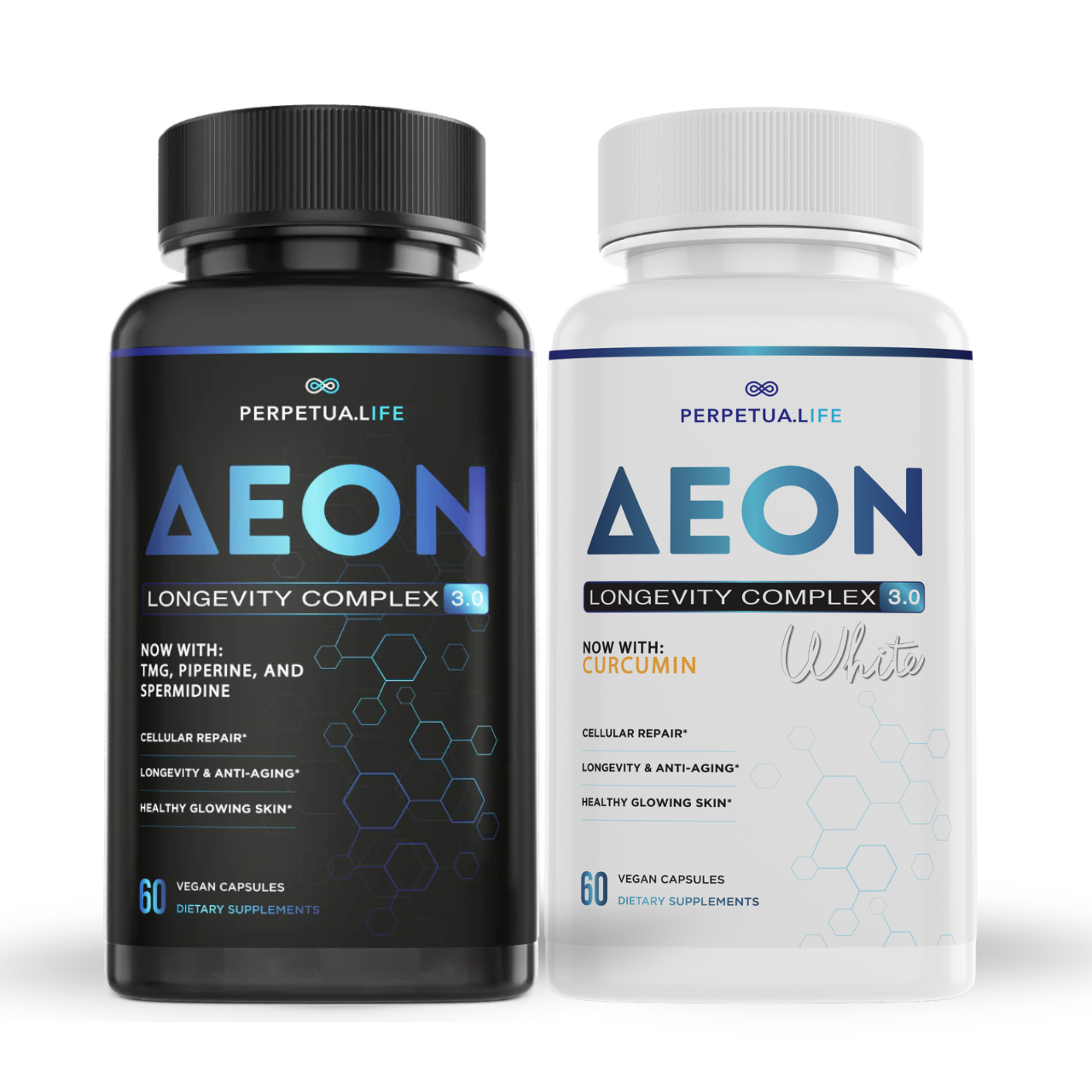
AEON Black & White Bundle
Looking to take your longevity stack to the next level? Then the AEON Black & White Bundle is for you!


